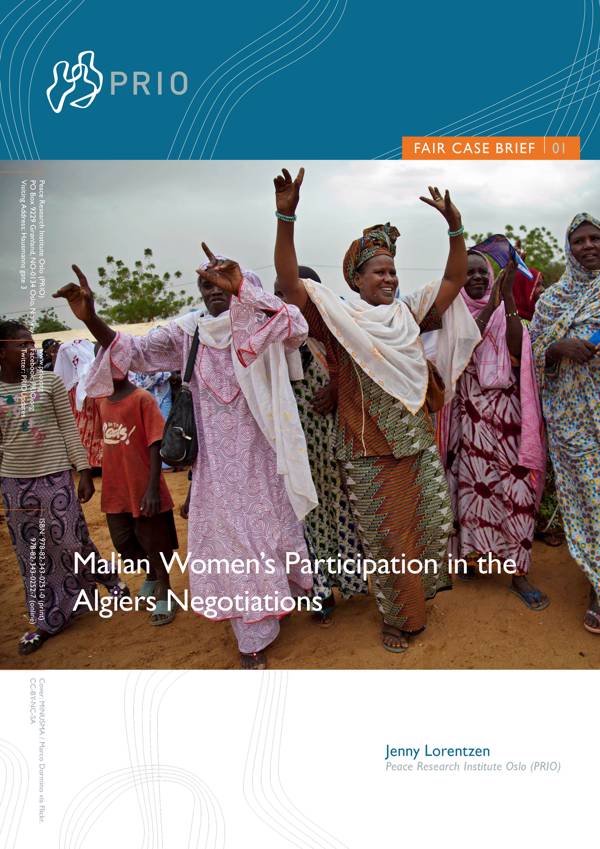This FAIR case brief focuses on Malian women's participation in the Algiers negotiations in 2014–2015. It shows how there were stark differences in perceptions of fairness when it came to women's participation among the different actors involved, including relatively strong resistance to women's participation from the international mediation team and the conflict parties in Algiers. Women activists, on the other hand, considered their exclusion and the resistance they faced as deeply unfair. They voiced their concerns through national and international campaigns, and sought support from international partners such as the UN, EU, bilateral partners, and individuals in positions of power. Even though exclusion dominated the Malian negotiations, the perceptions of this as unfair resonated enough with relevant audiences for the actors to enter into limited negotiations and adaptations with regards to how women should participate (at the table, through civil society hearings, from a distance), when women should participate (during negotiations or in the reconciliation), and which women should participate (civil society representatives or members of negotiation teams).
This is the first case brief from the FAIR project 'On Fair Terms: The Ethics of Peace Negotiations and Mediation'. The FAIR project is a systematic investigation of ethical problems and solutions in peace negotiations and peace mediation. The project engages with existing debates on norms in peace negotiations and explores relevant philosophical perspectives. FAIR sets out to develop a conceptual and philosophical framework for how to think normatively about negotiations or mediation in research, practice and public debate.








